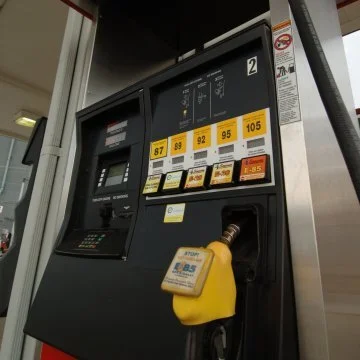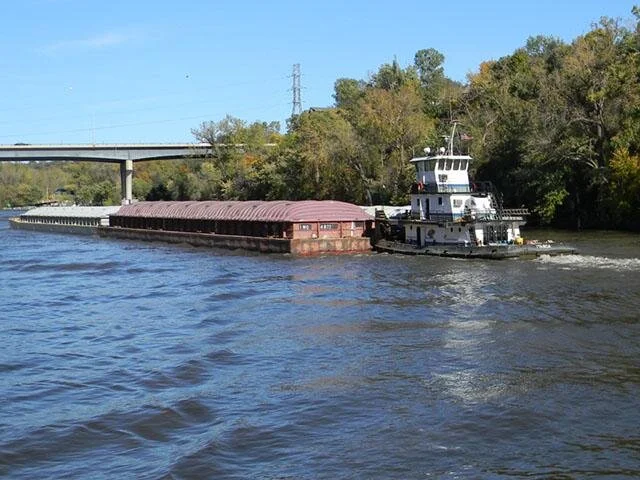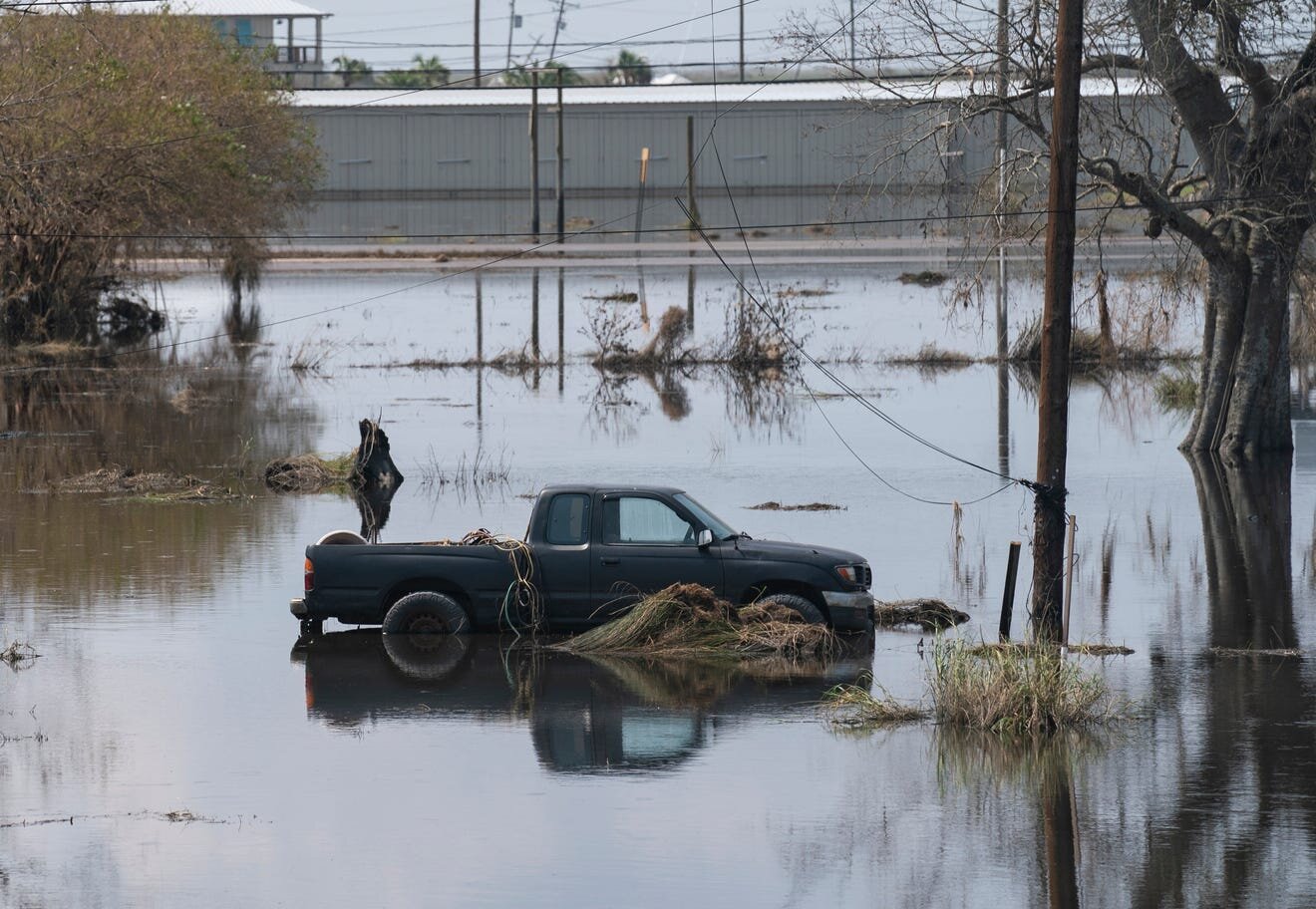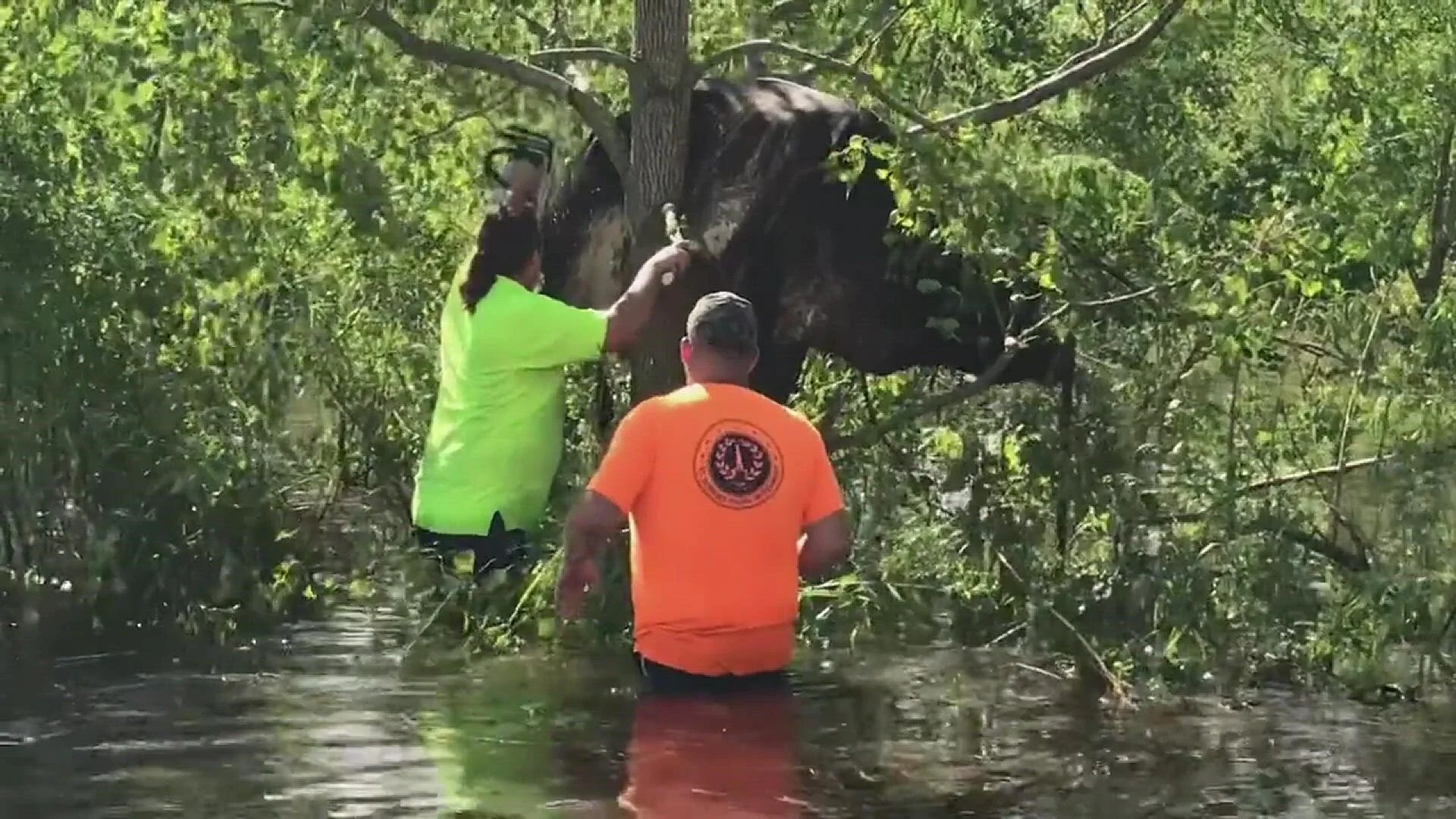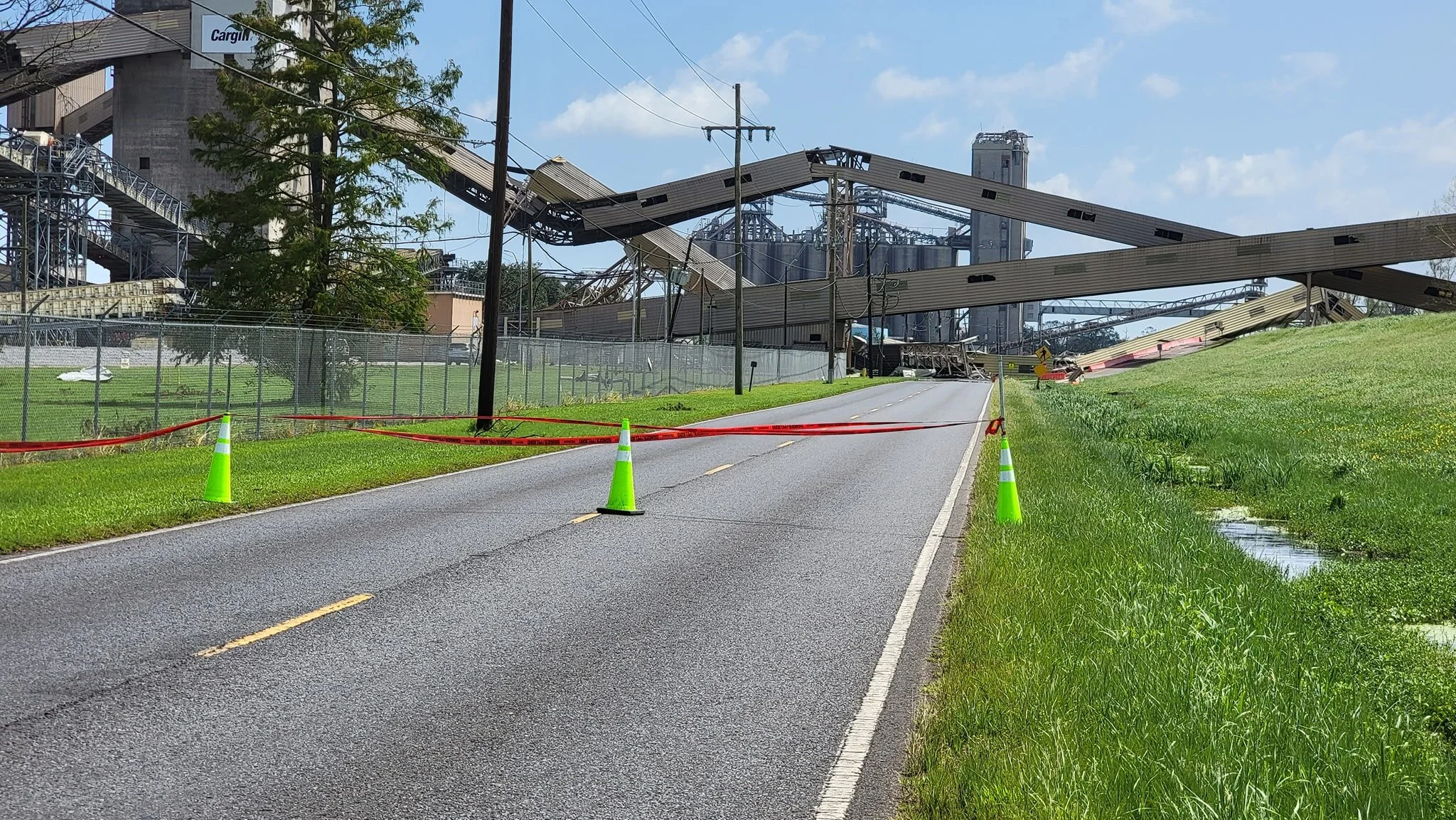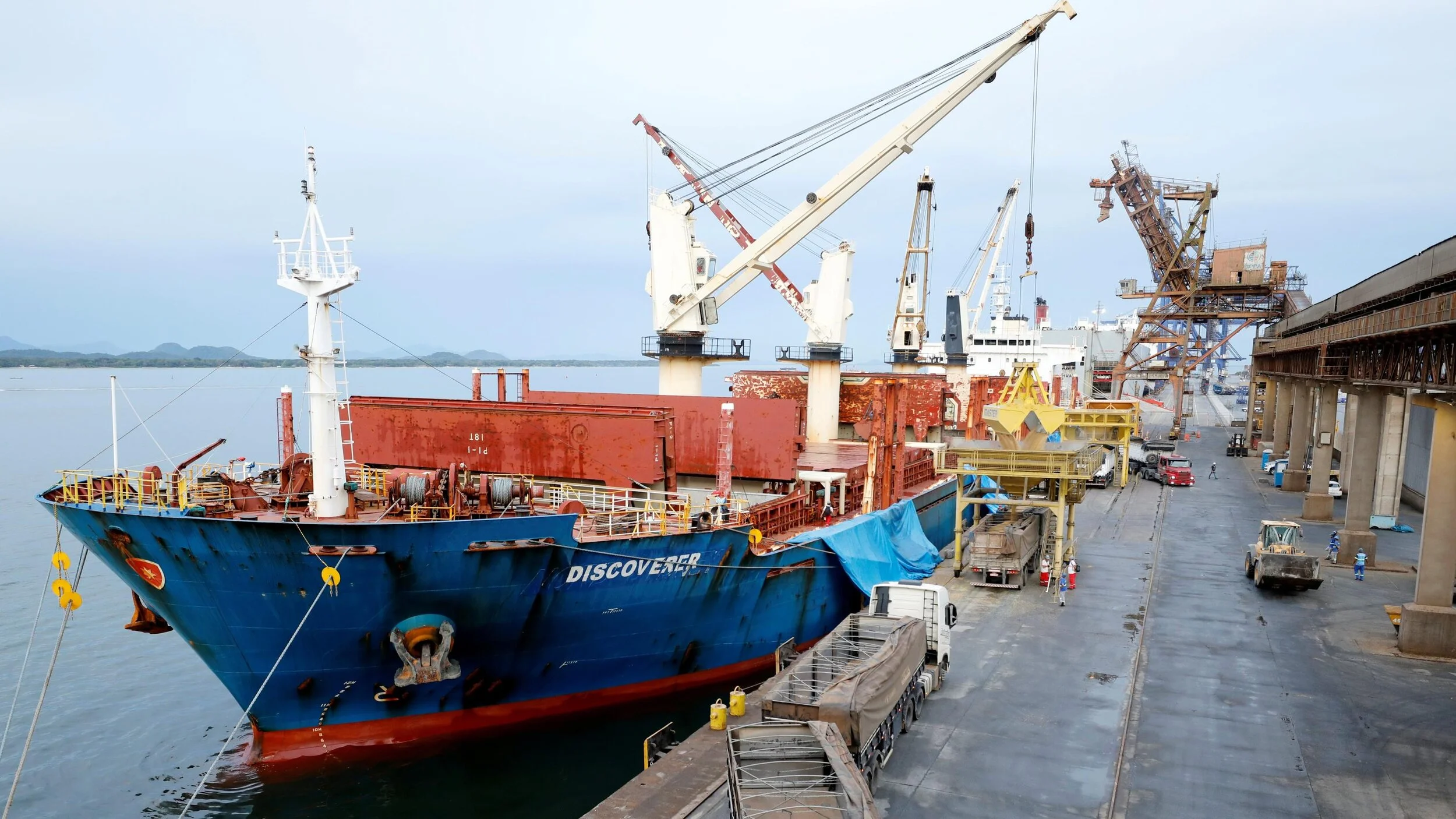Asia's grain and oilseed buyers are set to face shipping delays of at least one month after Hurricane Ida damaged key export terminals around the U.S. Gulf Coast, two traders and one miller said. The slowdown in supplies is likely to stoke food inflation fears for price-sensitive consumers in Asia, where many importers have already drawn down crop inventories after having been forced to curb purchases amid volatile crop prices and COVID-related supply disruptions this year.
Read MoreBales of hay are headed to Plaquemines Parish to help cattle and horses impacted by Hurricane Ida.
The Louisiana Department of Agriculture and Forestry says that the hay will be used to feed cattle and horses stranded following the storm.
LDAF says the delivery was made possible thanks to their partners at the Louisiana Farm Bureau Federation, Louisiana Cattlemen's Association, the LSU AgCenter, Louisiana Veterinary Medical Association Equine Committee, Texas Equine Veterinary Association, Texas A&M Veterinary Association and The Foundation for the Horse.
Read MoreThe White House on Tuesday issued a long-sought request for relief for southwest Louisiana more than a year after Hurricane Laura, providing hope that funding will soon arrive for faltering rebuilding efforts in a region devastated by four natural disasters and which has grown desperate in its pleas for help.
The announcement was greeted with cautious joy by the region’s political leaders who have spent months trying to draw attention to southwest Louisiana’s needs following not only Laura, but also Hurricane Delta six weeks later, an unusually harsh winter storm in February and flooding in May. While the request was long overdue for the region, it nonetheless marks major progress in their campaign.
Help is on the way for families affected by Hurricane Ida.
“When Hurricane Ida hit down in Louisiana, we wanted to help,” said Jenn Gillispie with First Fruit Farms.
Over two dozen Maryland farms came together to donate more than 100,000 pounds of food.
“Everybody in farming, we always been about helping people in need,” Joe Barten-Felder, who is the Secretary of Agriculture and farmer.
First Fruit Farms in Freeland helped organize the effort. It’s a non-profit that donates all its food grown at the farm for disaster and hunger relief.
Read MoreThough lines at the pumps remain stubbornly long amid a pitiless heatwave, Louisiana is finally taking baby steps toward alleviating the ongoing fuel shortage that arrived with Hurricane Ida.
Some of the state’s 16 refineries have in recent days resumed distributing fuel after gaining at least limited power. The state has sent fuel tankers across the hard-hit southeast part of the state to make sure government generators, cop cars and fire trucks remain full. Meanwhile, power companies on Friday continued to slowly but steadily turn on the lights, alleviating some of the pressure on the gas supply from generators powering homes.
Read MoreOn Sept. 4, the U.S. Coast Guard (USCG) reported that Coast Guard captain-of-the-port, New Orleans, Capt. Will Watson has opened the Lower Mississippi River to all vessel traffic in New Orleans and key ports throughout Southeast Louisiana Friday following Hurricane Ida.
After the successful removal of several power lines obstructing the waterway due to a downed transmission tower near mile marker 106.5 and a survey of the ship channel in key areas of concern, the waterway has been deemed open for all marine traffic, noted the news release.
Read MoreDamages to oil production facilities in the U.S. Gulf of Mexico on Sunday kept output largely halted a week after Hurricane Ida made landfall, according to offshore regulator the Bureau of Safety and Environmental Enforcement (BSEE).
Energy companies have been coping with damaged platforms and onshore power outages and logistical issues, slowing efforts to restart production. Some 88% of crude oil output and 83% of natural gas production remained suspended. Climate change is fueling deadly and disastrous weather across the globe, including stronger and more damaging hurricanes.
About 1.6 million barrels of crude oil remained offline, with only about 100,000 barrels added since Saturday. Another 1.8 billion cubic feet per day of natural gas output also was shut in, the regulator said.
Read MoreIronton is a small community that has seen its share of struggles, most recently with the devastating storm surge from Hurricane Ida.
The town is barely recognizable — most of the homes were destroyed. The rest are heavily damaged, and knee deep, and higher in floodwater.
That’s better than it was early last week when the only road that passes through town was at least six feet underwater, Lt. Gov. Billy Nungesser said.
"We tried to go in by airboat to tour the damage, but the marsh grass and debris was too much," he said.
Read MoreAn unusual water rescue in St. Bernard Parish after Hurricane Ida saw crews using a chainsaw to cut branches away from a cow caught in a tree, stranded above floodwaters.
The cow appeared unharmed in a video posted by parish officials. It was reportedly rescued Tuesday near the Florissant Highway, which experienced flooding and storm surge from Hurricane Ida.
Read MoreIt might be “herd” to believe, but some Louisiana cowboys recently undertook a very different kind of cattle drive after Hurricane Ida left grazing lands flooded—and they’ve been using airboats to do get the job done.
“We got about 300 head of cattle… out here that we couldn’t get out from the back pastures in time before the storm came in, being that it was a quickly developing storm,” lead volunteer Derek Billiot told WGNO News.
Read MoreOne of the two sugar refineries in the New Orleans area that were shuttered because of Hurricane Ida planned to reopen on a limited basis over the weekend with power restored at midweek.
The ASR Group (Domino) Chalmette refinery at Arabi, La., had outside power restored late Sept. 1.
Read MorePower outages alongside mangled trees, ruined crops and damaged grain elevators were early indications of Hurricane Ida's impact on Louisiana's agriculture industry.
The Louisiana Department of Agriculture and Forestry did a flyover Thursday across parishes hard hit by the storm. Commissioner Mike Strain saw some stranded livestock and flooding in some orchards in Plaquemines Parish, but it's too early to estimate the total cost of damage.
Read MoreHurricane Ida made landfall in Louisiana exactly 16 years after Hurricane Katrina ravaged the Gulf Coast. Ida’s 150 mph winds make it equal in strength and intensity as 2020’s Hurricane Laura and the 1856 storm that hit the community of Last Island. All three are tied as the strongest hurricanes to ever make landfall in Louisiana. Ida’s winds toppled electrical transmission lines that provide power to grain export facilities and small family farms alike. Ida’s storm surge sent cattle to higher ground along levees with hardly any forage and even less fresh water. Homes are damaged or destroyed. Our farmers and ranchers will feel the economic and psychological effects of this storm through this harvest season and beyond.
Read MoreGrain shippers on the U.S. Gulf Coast reported more damage from Hurricane Ida to their terminals on Wednesday as Cargill Inc confirmed damage to a second facility, while power outages across southern Louisiana kept all others shuttered.
Global grains trader Cargill Inc said its Westwego, Louisiana, terminal was damaged by Hurricane Ida, days after confirming more extensive damage at its only other Louisiana grain export facility located in Reserve.
Hurricane Ida barrelled into the Louisiana coast on Aug. 29, bringing 150 mph (230 kph) wind gusts, torrential rain, and widespread power outages to New Orleans and the surrounding region. It also brought all shipping traffic through the mouth of the Mississippi River to a grinding halt, snarling supply chains at the start of a crucial period for US grain exports.
The US Coast Guard closed the Mississippi to barge traffic ahead of the storm on Aug. 28, and the New Orleans International Airport shut down passenger and cargo traffic on Aug. 29. The Port of New Orleans closed its container shipping terminals on Aug. 30 and stopped all “breakbulk operations,” which refers to moving cargo from large ocean freighters to smaller barges for transport up the Mississippi River.
Read More




